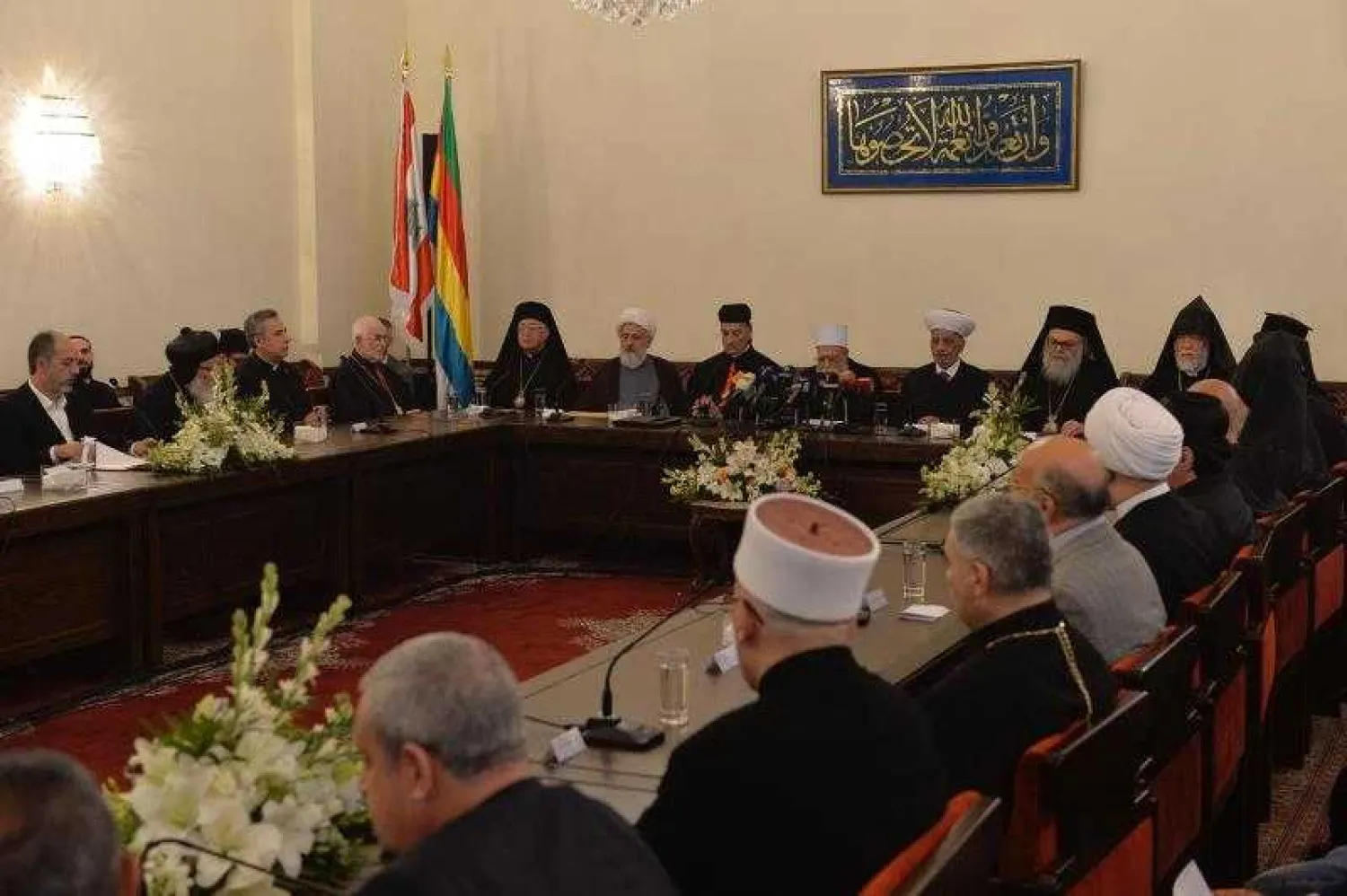Lebanon’s Muslim and Christian spiritual leaders announced on Tuesday that they hold onto the constitution’s principles.
On Tuesday, Maronite Patriarch Beshara Boutros Rahi, Grand Mufti of the Republic Sheikh Abdullatif Derian, Vice-President of the Supreme Islamic Shiite Council Ali Khatib, and the Grand Jaafari Mufti Sheikh Ahmad Kabalan attended an Islamic-Christian spiritual summit at the Druze community house, at the invitation of Druze leader Sheikh Naim Hassan.
In their statement, the clergymen said the national unity that emerged following the adoption of the Taef Agreement constitutes the basis of reviving Lebanon.
The religious summit mainly tackled the stalled cabinet meetings and the need to respect the Taef Accord, especially after last month’s deadly shooting in the Aley region, which has paralyzed the government at a critical moment and risks complicating efforts to enact reforms needed to steer the heavily indebted state away from financial crisis.
Two aides of a government minister were killed in the shooting when his convoy passed through a village in the Chouf mountains a month ago, an incident he declared an assassination attempt by adversaries. They deny the accusation.
On Tuesday, Derian called for ending the country’s crises “in line with the rules of national unity and coexistence and through adherence to the constitution and Taef.”
Sheikh Hassan called on President Michel Aoun “to bring the Lebanese together under one roof”, and to prevent any attempt to strike the foundations of Lebanon’s coexistence.
"We make an extraordinary appeal in this difficult and extraordinary time that our country is witnessing, in light of the dangers that beset us and the crises that are raging in our region," Hassan said, urging politicians to be as responsible as they should be, and to shoulder the burden and be up to the Lebanese aspirations.
Referring to the dangers that are surrounding the country, Khatib said politicians are preoccupied with narrow and personal interests, putting Lebanon under threat.
As for Rahi, he hoped the summit becomes a periodic one. "We all pray for the nation’s salvation," he said.









